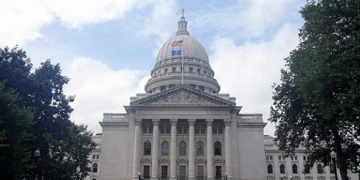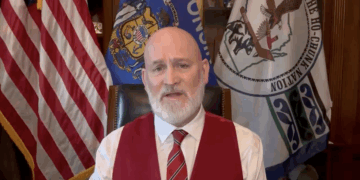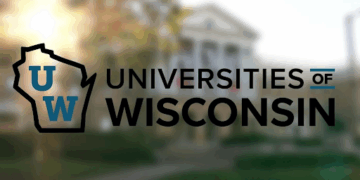The Biden Administration is using the Department of Education’s extensive email list of over 40 million student loan borrowers to promote its agenda on student debt forgiveness. This move, while ostensibly reflecting the administration’s priorities on student loan cancellation, has raised concerns about the appropriateness and fairness of leveraging government resources for what appears to be a political campaign to bolster support for the Biden-Harris administration.
The announcement comes after another loss for the Biden Administration as courts has ruled that the executive action taken on student loan debt is unconstitutional. In mid-July, the 8th Circuit Court of Appeals issued a ruling granting a motion for an administrative stay filed by a coalition of Republican-led states aiming to nullify the administration’s entire student loan forgiveness program. This order prevents the administration from enforcing the components of the SAVE plan that had not already been halted by lower court decisions.
The use of government resources for what appears to be a political campaign raises ethical questions. While informing borrowers about potential relief is within the Department of Education’s purview, the timing and content of the communication suggest an ulterior motive. This move could be seen as an unfair advantage in garnering support, especially from a demographic that stands to benefit directly from the administration’s policies.
In the video and email sent out by Secretary of Education Miguel Cardona’s office, the administration outlined its achievements and future plans regarding student debt relief. The letter emphasized President Biden’s commitment to addressing broken student loan programs and making higher education accessible. Cardona lists the administration’s so-called “accomplishments” such as the approval of debt cancellation for 4.76 million Americans, reforms to the Public Service Loan Forgiveness program, a significant increase in the Pell Grant, and the introduction of the Saving on a Valuable Education (SAVE) Plan. Furthermore, the letter highlighted new plans announced by President Biden in April to cancel student debt for various categories of borrowers.
Americans chimed into the statement on X, arguing that using this email list to disseminate such information is a thinly veiled attempt to campaign for the administration, particularly to gain support from student loan borrowers who are reliant on the promise of debt forgiveness. With the courts largely blocking Biden from unilaterally canceling student debt, these emails serve as a reminder of the administration’s efforts and intentions, potentially swaying voters who feel financially burdened by student loans.
































